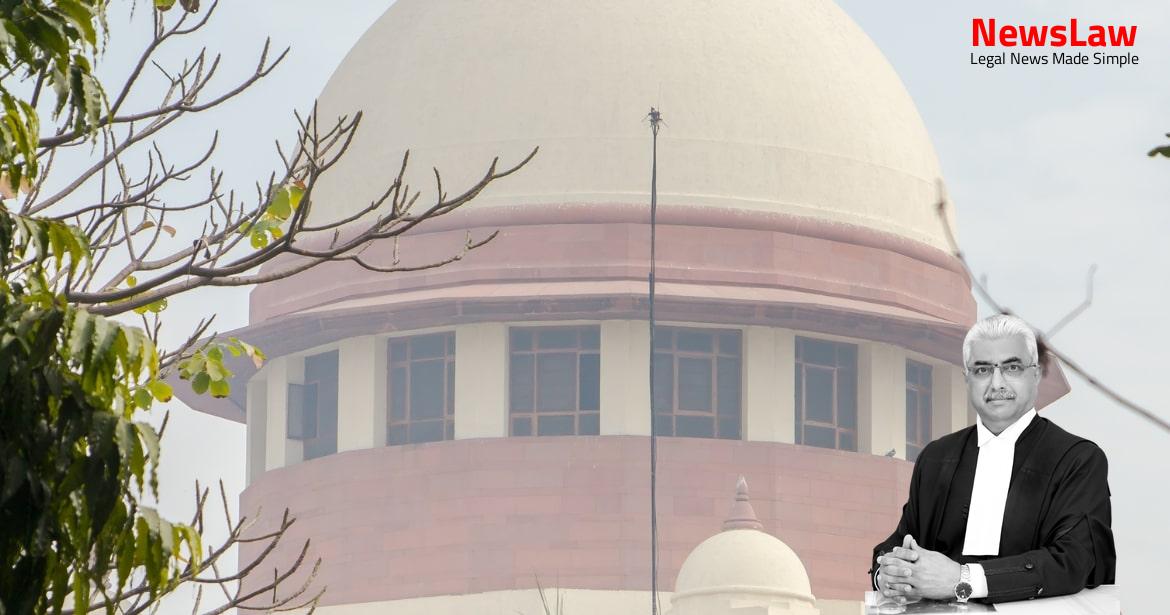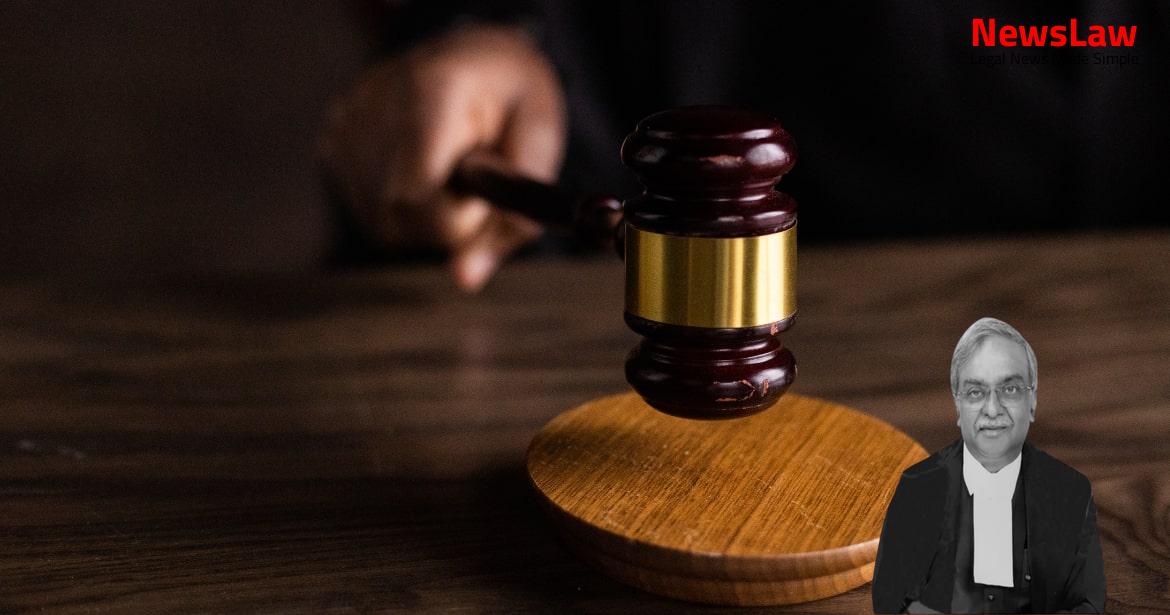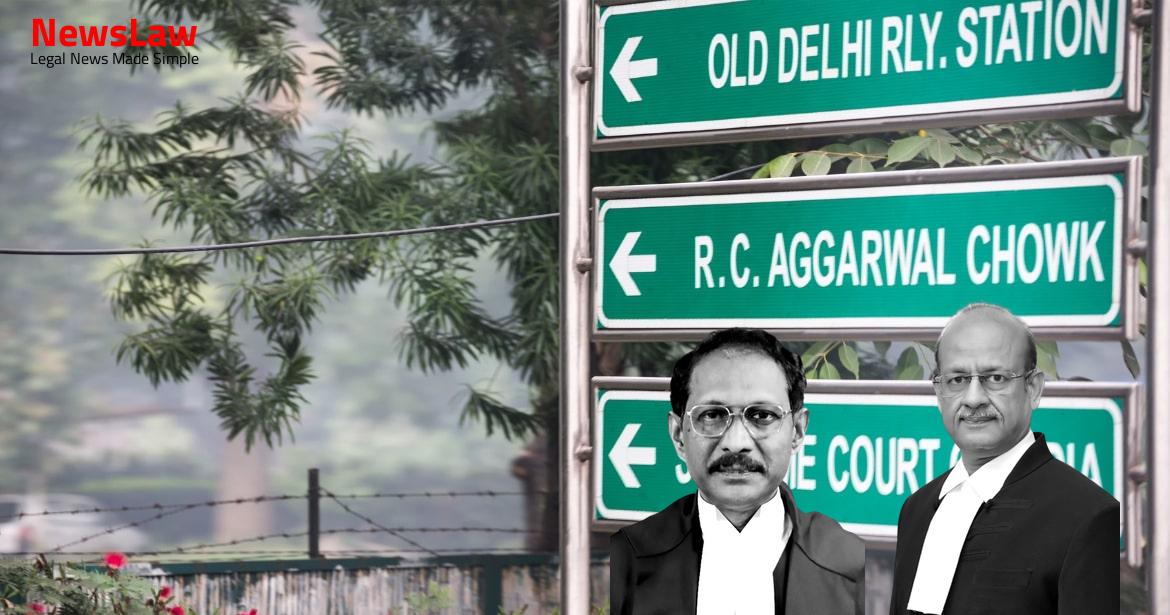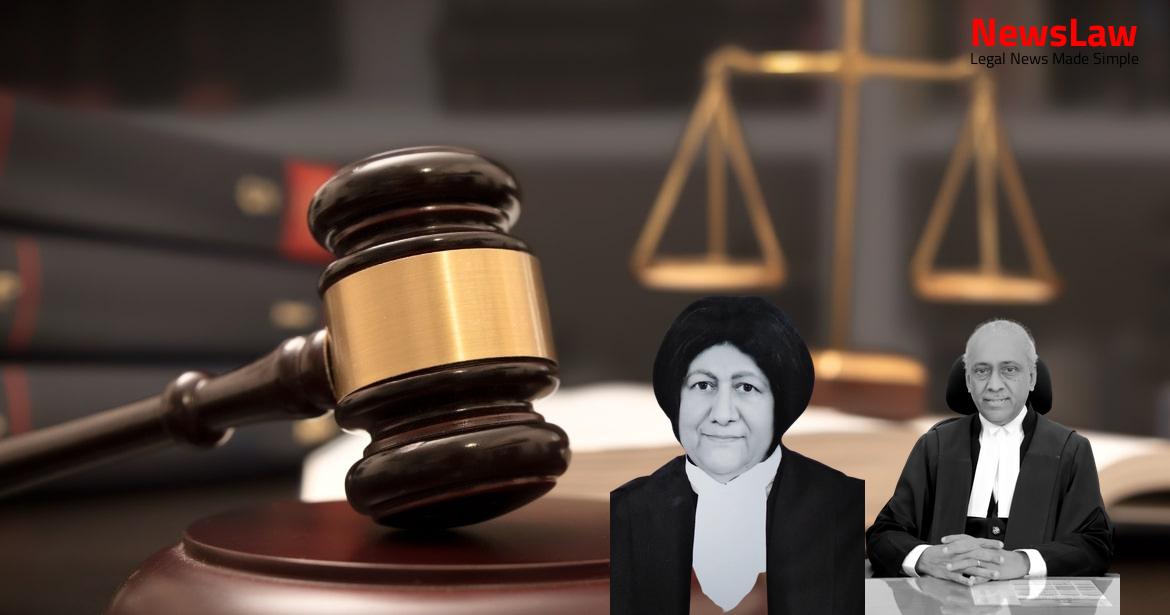In a significant legal battle between the State of Tamil Nadu and the Association of Engineers, the Supreme Court of India addressed the issue of the appointment of Technical Assistants as Assistant Engineers. The case delved into the controversy surrounding the eligibility criteria and process for these appointments, impacting the careers of many individuals in the engineering field.
Facts
- The Single Judge of the High Court allowed the writ petition and restrained the appointment of Technical Assistants as Assistant Engineers without amending the statutory rules.
- The Division Bench of the Madras High Court overturned the Single Judge’s order and allowed the writ appeals filed by the respondents.
- The Special Rules were amended multiple times, eventually allowing Technical Assistants with five years of service to be appointed as Assistant Engineers upon acquiring a specific degree qualification.
- The respondents’ services were to continue for 3 months, and they would not suffer reversion if Technical Assistants were included as feeder category within that time frame.
- The order of the Tribunal, which stated that Technical Assistants are not part of the feeder category for Assistant Engineers’ recruitment, was challenged by the appellants before the High Court.
- The Madras High Court upheld the decision of the Tribunal and rejected the claims of the appellants.
- Applications filed by Junior Draughting Officers and Draughting Officers were allowed by the Tribunal in 1997, but applications filed by Technical Assistants were dismissed.
- 29 out of 122 vacancies for Assistant Engineers had been filled through recruitment by transfer.
- In 2009, an order of the High Court was challenged in Civil Appeal No. 995 of 2009, which was later dismissed.
- Unemployed engineering graduates filed a writ petition in 2016 challenging the validity of Government Order No. 1.
- The matter regarding Technical Assistants not being part of the feeder category for recruitment by transfer for Assistant Engineers is still pending adjudication.
- In 1991, Government Order No. 88 clarified the appointment process for certain positions as Assistant Engineers.
- The State Government issued directions in 2006 to fill vacancies with Technical Assistants due to a lack of eligible candidates by transfer.
- An Association of Engineers filed a writ petition challenging appointment orders on various grounds in 2007.
- Multiple writ petitions were filed in the Madras High Court regarding appointments and orders related to Assistant Engineers.
- The Technical Assistants did not challenge the dismissal of their applications by the Tribunal.
Also Read: Understanding Legal Judgments: Ravishankar Tandon vs. State of Chhattisgarh – Conviction Reversed
Arguments
- The appointments of Technical Assistants are contrary to the rules of appointment for Assistant Engineers.
- Technical Assistants enter through backdoor appointments by the Superintending Engineer, while Assistant Engineers enter through competitive examinations based on merit.
- The Technical Assistants did not commence their duties or probation as required by the Rules.
- Appointment to a service must be in accordance with the Rules, and Technical Assistants are not approved candidates for the post of Assistant Engineers.
- Temporary appointments can only be made when there is a delay in following the Rules.
- Promotions or appointments must be made on merit and ability, and the appointment of Technical Assistants does not meet these requirements.
- The appointments of Technical Assistants as Assistant Engineers are not valid without regularization and declaration of probation as mandated by the Rules.
- The appointment of Technical Assistants violates the Right to Equality under Article 14 of the Constitution and the efficiency mandate under Article 335.
- Technical Assistants cannot be in the feeder cadre for promotion to Assistant Engineers without an amendment to the Rules.
- The temporary appointments of Technical Assistants have not been regularized, and their probation has not started.
- Allowing Technical Assistants to move ahead of Assistant Engineers would go against merit-based promotions and promote backdoor entries.
- The High Court upheld the appointments based on executive instructions until rules are framed under Article 309 of the Constitution.
- The State’s failure to amend the Rules prevents Technical Assistants from being promoted to Assistant Engineers.
- G.O. No 1 was challenged by Engineering Graduates who had obtained degrees through regular courses before the High Court of Judicature at Madras.
- The case involved Technical Assistants being appointed as Assistant Engineers upon acquiring B.E./A.M.I.E. qualification.
- The argument of filling gaps in rules with executive instructions, based on the case of Sant Ram Sharma v. State of Rajasthan and Others, was presented by Shri Senthil Jagadeesan.
Also Read: UCO Bank v. Borrower: Dismissal of Writ Petition
Analysis
- The Division Bench of the Madras High Court upheld G.O. No 1 and its provisions.
- Technical Assistants, upon acquiring a degree qualification, can only compete for 25% of the Assistant Engineer posts designated for Subordinate Service.
- There are vacancies in the Assistant Engineer post to be filled by transfers, with only 29 out of 122 vacancies filled so far.
- The Technical Assistants are not encroaching upon the 75% quota apportioned for directly recruited Assistant Engineers.
- The government exempted Technical Assistants from certain provisions to appoint them as Assistant Engineers temporarily due to vacancies.
- Article 136 of the Constitution confers an exceptional power to be exercised sparingly, with caution and care, to remedy extraordinary situations or gross failure of justice.
- The power under Article 136 is overriding, allowing the Court to generously impart justice and remedy injustice.
- It does not grant a right to appeal in litigation but provides the Court with a discretionary and wide-ranging power to satisfy the demands of justice.
- The jurisdiction under Article 136 is discretionary and should be exercised accordingly.
- The facts and circumstances of the case do not inspire the conscience of the Court to act in favor of the appellants.
- Equity does not warrant interference in the impugned judgment in this case.
Decision
- Learned counsel for the parties agree that the writ petitions WP No 3617 of 2017 and 35161 of 2019 were decided by the Madras High Court without considering the facts and submissions.
- Both parties requested for remanding the matter to the High Court for fresh consideration.
- The appeals are allowed, and the impugned orders in WP No 3617 of 2017 and WP No 35161 of 2019 are quashed and set aside.
- The matters are remanded back to the Madras High Court for reconsideration in accordance with the law.
- Any pending applications are disposed of.
- No costs are awarded in the matter.
- The appeals are dismissed in Civil Appeal Nos. 4372, 4890, 4891, and 5747 of 2023.
Case Title: ASSOCIATION OF ENGINEERS Vs. THE STATE OF TAMIL NADU (2024 INSC 306)
Case Number: C.A. No.-004886-004888 / 2023



